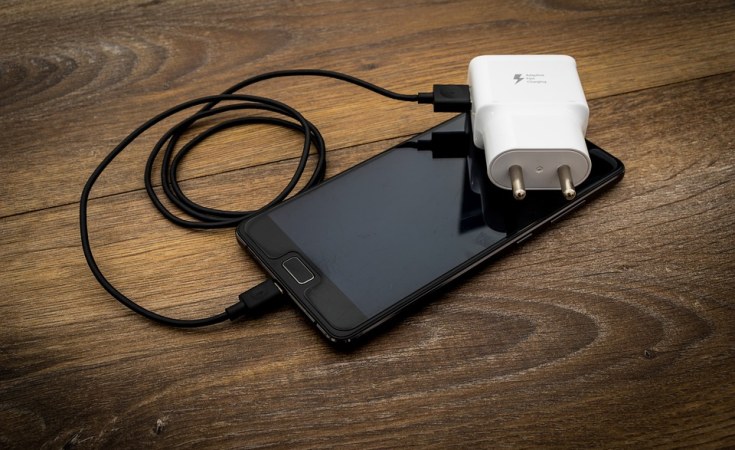When I was invited to submit comments to the United Nations on how to best "leave no one behind" during the implementation of the Sustainable Development Goals (SDGs), I faced a problem. Writing my feedback was not hard, what challenged me was submitting it online.
In my Kenyan community where I work promoting the rights of widows, I had no internet access or data on my mobile phone as I tried to meet the deadline. I traveled to the nearby town, Bondo, which is 35kms away, to use an internet cafe where I had a credit account. This time, I was lucky, because there was no power outage there. Just two weeks before, we had a country-wide blackout for over 48 hours. Through lots of effort, I was able to submit my feedback, but how many others did not have their voices heard because the method for submitting comments was impossible?
Technological challenges are a typical experience. Dr. Tijani Salami, who works on sexual and reproductive health and rights in rural Nigeria, and I often experience the impact of technology inadequacy on our work and our ability to advocate for women and girls.
"I spend most of my time on activities in the rural areas that have no access to electricity, unstable mobile networks, or internet services. We rely on the provision of power through generators or solar systems to deliver reproductive health services or use audio-visuals to educate adolescents and women in SRHR areas", says Dr. Salami, the director of Sisters Caregivers Project.
Across rural Africa, accessibility to functional information and communications technology infrastructure remains a prayer for many individuals. Factors like affordability and accessibility remain a struggle for underfunded grassroots organizations who face the high cost of data and computers and smart phones. What happens to organizations working in places with no or limited internet access, or those in war or conflict zones like Myanmar and Ethiopia where the government shut the internet down due to the ongoing conflict? How do they engage in global efforts, let alone effectively lead local efforts?
In Nigeria, it cost the Sisters Care project an average of 4,000 naira (10 dollars) per day to generate power and run the SRHR services for rural populations. When the mobile network is available, the cost of the internet is too expensive for poor women and girls to use.
Only 5% of children and young adults have access to internet in West and Central Africa and only 13% in South Asia, East and Southern Africa. This is compared to 59% in Eastern Europe and Central Asia. About 58% of Nigerians have no access to internet, partly because of the country's significant numbers of rural dwellers, estimated to be 39%.
The upcoming Commission Status of Women (CSW62) meeting in New York, makes us reflect on our experiences, and wonder - how can we achieve the UN 'leave no one behind' campaign when so many girls and women are automatically left behind for technological reasons? All too often, rural women and girls with digital illiteracy and low access must navigate and engage against these visible odds - and most of them are simply left out.
When women and girls can connect to the Internet for meetings and campaigns, they may not feel comfortable. Indeed, the capacity to engage online requires a certain skill set, comfort with the technology and camera. You have heard people ask on Zoom calls, "Do you hear me?" ten times. Joining calls is no longer just work, as some folks feel like they are performing to an audience on tv. Many join calls amidst common rural sounds like goats bleating, chickens roaring and babies crying in the background and may feel self-conscious.
Of course, there is also an underside to accessing technology are issues like cyber-bullying which has gained a new space and currency in the digital platform in Kenya and Nigeria. For any woman to join an online meeting - breast feeding without trolls, is an unlikely miracle. If anything, cases of teen pregnancy, suicide/femicide and gender violence has increased in the last two years with more connection. Yet, it is still important for everyone to have access to technology and for these problems to be addressed.
African governments need to fast-track optic cable projects, to connect at least major rural towns and avoid internet outages. Through these efforts, they can empower rural women and girls with technology and help the NGOs which are working with them. There are some promising examples already, like the LAPSSET, Eastern Africa's largest infrastructure and most ambitious project bringing together Kenya, Ethiopia and South Sudan. Or the Sh160 billion Nairobi - Mau Summit Cable Optic project in Kenya. These cross-country projects will integrate and connect facilities, existing licensed internet service providers and telcos - and provide stability to rural internet users. We need more of them.
In the meantime, until everyone has equal access to technology, global campaigns should have a hybrid system for participating, with online submissions alongside hand-written submissions as well as the option to submit recorded voice notes and short videos that use minimal data. They also need to allow for extra time for mailed submissions. This is the only way that all voices and needs included at key decision making platforms like the United Nations can be heard. This is the only way to ensure we 'leave no one behind'.
Roseline Orwa and Tijani Salami are 2021 Aspen New Voices Fellows. Roseline Orwa is the founder and Director of the Rona Foundation, a grassroots organization in Kenya that works to advance and protect widows' rights, as well as provide support to orphans and vulnerable children. Twitter: @RoselineOrwa.
Dr Tijani Salami is a physician, sexual and reproductive health expert and founder of Sisters Caregivers Project Initiative which provides medical and social support for women, and advocates for an end to child marriage and maternal malnutrition. Twitter: @DrSalamiTijani1.


